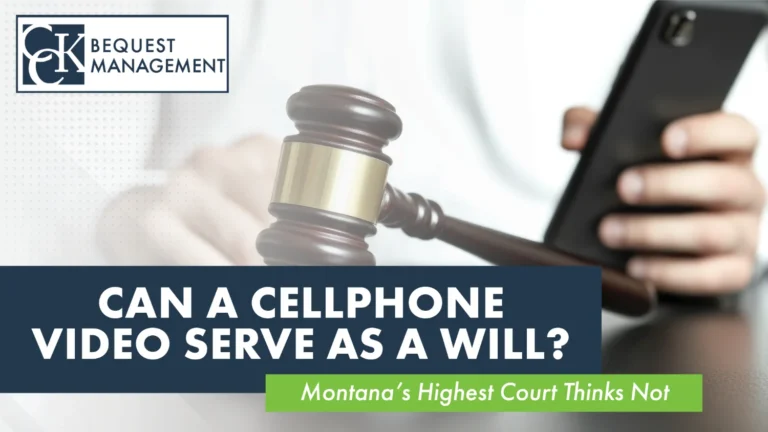Can a Cellphone Video Serve as a Will? Montana’s Highest Court Thinks Not

In an interesting case that pushes against the outer limits of what can count as a will, the Supreme Court of Montana has ruled that a cell phone video in which a decedent states his testamentary wishes is not good enough.
Jesse Beck crashed his motorcycle on a Montana highway. Another motorist stopped to render assistance. While that was happening, a sheriff’s deputy sped to the scene and struck and killed both Jesse and the Good Samaritan. Jesse was survived by his only child, Alexa, an adult.
As it happened, four days before the fatal accident, Jesse had recorded a cellphone video and sent it to his brother Jason. In that missive, Jesse said the following:
I, Jesse Beck, give all my possessions, if anything happens to me whatsoever, I give all my possessions, everything, to Jason Beck, my brother. Christina Fontineau does not get one thing, not one thing.
Alexa filed a petition for an appointment as the administrator of her father’s intestate estate. Her uncle Jason objected and introduced the cell phone video to accompany his petition to replace his niece as the administrator and to have himself named as Jesse’s sole beneficiary.
The Supreme Court of Montana rejected Jason’s petition, relying upon pervasive references in state law to valid wills as “writings” and concluding on that basis that the video could not serve as a testamentary document.
CCK COMMENT: While this decision may seem unnecessarily rigid, we believe that it is consistent with both recent and long-term trends in the law. “Video” wills provide evidence in support of the legitimacy of related written documents (e.g., the presence of witnesses, the lack of coercion, the apparent competence of the testator). The videos themselves do not replace the associated wills. Even the much-discussed Horton case in Michigan, which allowed a cellphone note to serve as a will, involved a writing that was unmistakably intended to be the author’s (who was planning suicide) last testament. In Re Estate of Horton, 925 N.W.2d 207 (Mich.App. 2018). In the Beck case, there is no writing, and it is not entirely clear whether the video’s purpose was to give testamentary instructions or just to blow off steam about an obvious falling out with Ms. Fontineau.
Matter of Estate of Beck, 557 P.3d 1255 (Mt. 2024)
(This blog was originally posted on our LinkedIn on June 24, 2025.)